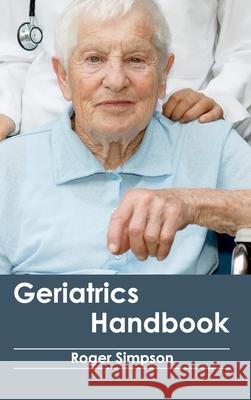Geriatrics Handbook » książka
Geriatrics Handbook
ISBN-13: 9781632412294 / Angielski / Twarda / 2015 / 248 str.
Geriatrics deals with the health care of elderly people. As the life expectancy of baby boomer generation has now gone up to 65 years, the focus of medical areas has shifted towards the issues of providing this population of geriatrics individuals with proper resources. Geriatric health care is complex by structure, inclusive of medical, educational, social, cultural, religious and economic aspects. This book presents a complicated interplay of these factors in the growth, organization and therapy of geriatric patients, starting with an analysis of sarcopenia, cognitive decline and dysphagia as the pivotal aspects of frailty syndrome. The book also sheds light on the schemes required to increase life expectancy, and quality of lifestyle, like exercise, nutrition and immunization, as well as the effect of physical, psychological and socio-cultural changes in old people. It also provides an analysis of problems related to the death of diseased people, including the advocacy by diseased and their families for extra sensitive care, their reactions towards autonomy and legal tools, and the expense of novel health care instruments and supply.
Geriatrics deals with the health care of elderly people. As the life expectancy of baby boomer generation has now gone up to 65 years, the focus of medical areas has shifted towards the issues of providing this population of geriatrics individuals with proper resources. Geriatric health care is complex by structure, inclusive of medical, educational, social, cultural, religious and economic aspects. This book presents a complicated interplay of these factors in the growth, organization and therapy of geriatric patients, starting with an analysis of sarcopenia, cognitive decline and dysphagia as the pivotal aspects of frailty syndrome. The book also sheds light on the schemes required to increase life expectancy, and quality of lifestyle, like exercise, nutrition and immunization, as well as the effect of physical, psychological and socio-cultural changes in old people. It also provides an analysis of problems related to the death of diseased people, including the advocacy by diseased and their families for extra sensitive care, their reactions towards autonomy and legal tools, and the expense of novel health care instruments and supply.











